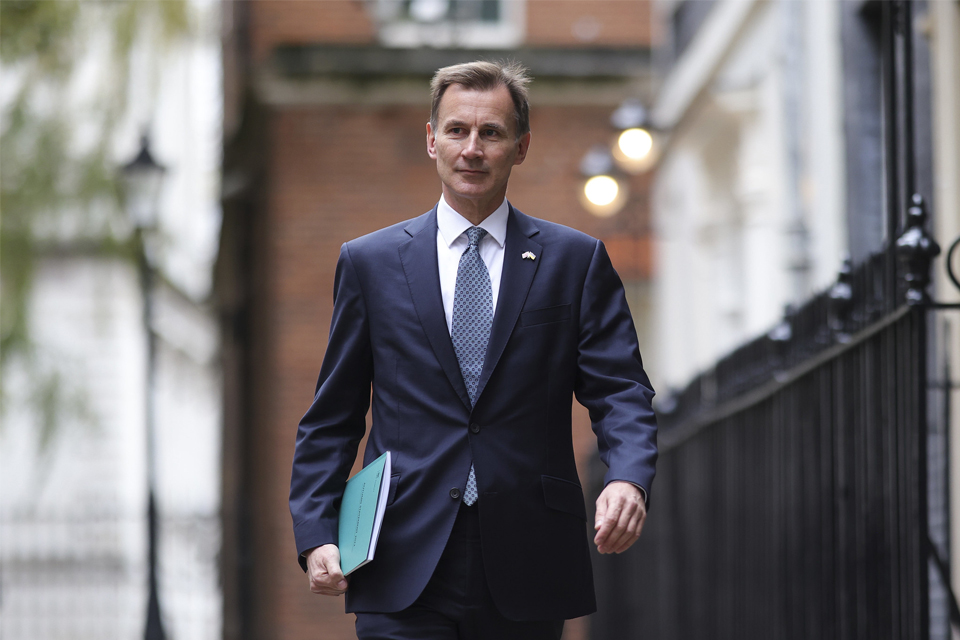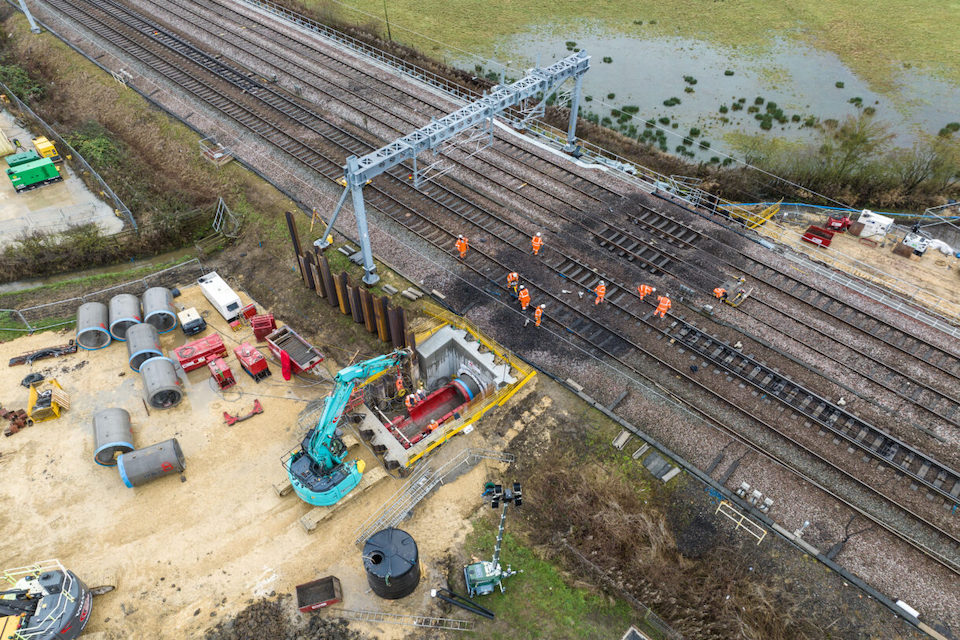Jeremy Hunt delivered a budget speech last week. It may be his last. it’s not because the rail freight sector has put out a contract on the UK Chancellor. However, there may well be an election before he has another opportunity to deliver some solace for the sector.
A budget speech may not be the place to expect a rail electrification announcement. It’s no surprise that it wasn’t. However, once again, there was no announcement of a change in fuel duty. That, says a lobby group, directly affects rail investment and is especially damaging to the freight sector.
Fuel duty unchanged for fourteen years
Responding to the Chancellor’s Spring Budget, Noel Dolphin of the Campaign to Electrify Britain’s Railways said it was an opportunity lost. He says that leaving fuel duty unchanged again is costing the railways, which could benefit from the revenue raised. “We should be investing in a tried and tested solution to reduce carbon emissions, slash journey times for commuters and boost productivity with a rolling programme to electrify our railways”, he said.

Fuel duty is a flat rate tax on petrol and diesel. The actual charge per litre has remained unchanged throughout the fourteen years of the Conservative government in the UK. Dolphin says that when taking inflation into account, that is a real-term cut, which is expected to cost 27 billion pounds (31.6 billion euros) over five years. “This is roughly the same amount it would cost to electrify 11,000 kilometres of Britain’s railway – 17 times the length from London to Edinburgh on the East Coast Main Line and the same amount Network Rail says it needs to electrify to meet Net Zero. It’s another opportunity missed to put our infrastructure on the right track.”
Rail Industry Association looks for positives
“Our members will be disappointed that an opportunity has been missed to leverage rail to drive economic growth more widely,” said Darren Caplan of the supply-side representative body, the Railway Industry Association. It is worth remembering that for every pound spent on rail, [two and a half times as much] is generated in the wider economy.”
Rail suppliers will be disappointed the Chancellor has failed to provide certainty or clarity on the outlook for network enhancements. Caplan returned to a familiar issue. “There is still a black hole on rail infrastructure pending following the scrapping of HS2 Phase 2. The Network North schemes [which might replace the high-speed rail project in the north of England], whilst welcomed by rail suppliers when they go ahead, do not amount to the rail spending lost, and those mentioned are subject to business cases, and the HS2 Euston proposals are far from certain.”
Rail Partners’ response is similar
Andy Bagnall at Rail Partners, the high-level lobby group that promotes the interests of the industry, including the rail sector, responded similarly disappointed. “The fourteenth consecutive year of fuel duty being frozen will be welcome news for motorists and lorry drivers,” he said. Rail freight businesses continue to see rising costs, and rail passengers have seen fares rise by 4.8 per cent [earlier this month].”

Britain has a legally binding target to meet net zero by 2050. None of the organisations can feel the budget has done anything to encourage much in the way of corporate sustainable transport choices, or modal shift in the direction of rail over road. Andy Bagnall at Rail Partners wants to see rail freight included in wider economic and climate change policies. “In order to decarbonise our transport sector, the government must take a more holistic approach to make sure rail freight can be competitive on price with road haulage and that the costs of passenger transport modes reflect their environmental impact”, he said.
The Campaign to Electrify Britain’s Railway say their cost estimates are based on Network Rail’s target cost for the Midland Mainline Electrification programme of 2.5 million pounds (2.93 million euro) per single track kilometre. Network Rail’s own research says that 11,700 kilometres of railway in Great Britain would suit electrification.
